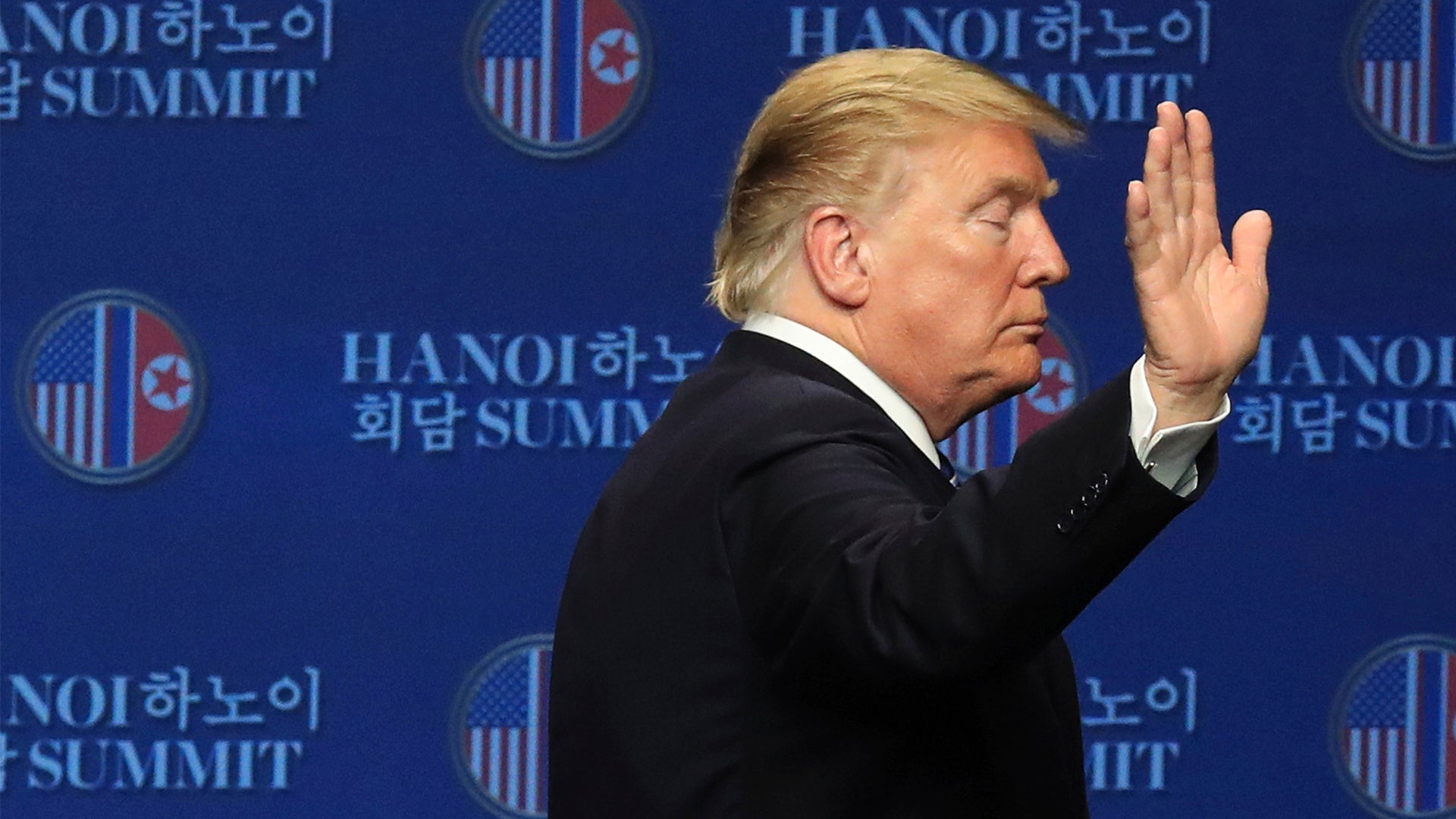It has been nearly eight months since the highly anticipated summit between Kim Jong Un and Donald Trump took place in Singapore. That engagement was a missed opportunity and an astonishingly poor showing overall for the Trump Administration and especially for the President himself. This time around, in Hanoi, the mood was different. The excitement was a fraction of what it was in Singapore and even the President’s own image as a knowledgeable negotiator had notably changed over the last eight months. In the end, the seemingly inevitable stance held by the North Koreans became undeniable. But, instead of taking whatever scraps North Korea threw him via a weak deal or some phony joint declaration on what was already a very grim day for his Presidency, Donald Trump did the right thing. The hard thing.
He walked on Kim.
The glaring truth is that this should have happened in Singapore, not after months of grotesque flattering, many diplomatic meetings, and a trip around the world to Hanoi.
For proper context, make sure to read our analysis from the Singapore Summit and our most recent piece on the negotiations.
Over the better part of a year, North Korea had given zero signs that it had any plans to denuclearize or even give up anything substantial as show of goodwill. While this was going on, Secretary of State Mike Pompeo kept making laughable claims about the directions of the negotiations, but even those eye-rolling statements became more muted and skeptical in recent months.
All the while, Donald Trump praised Kim Jong Un without end, even going as far as saying he was in love with the brutal dictator. The President childishly proclaiming the nuclear threat from North Korea was over after acting as if the hollow document he signed in Singapore was worth more than its weight in pulp was even worse.
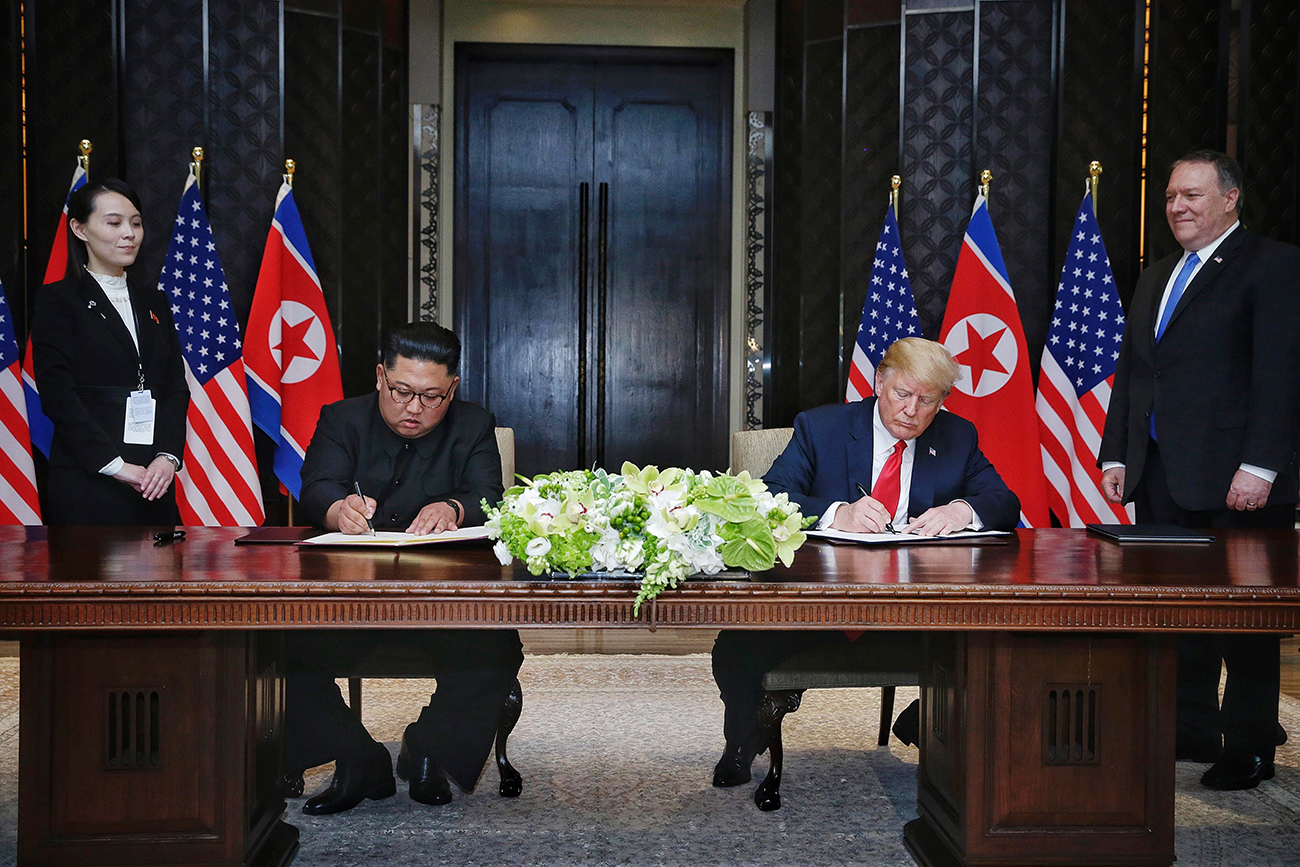
All the while, North Korea’s star has risen on the world stage. Its neighbors Russia and China have cozied up to Kim and even though big claims have been made about how hard the regime has been hit by international sanctions, consistent proof says otherwise.
On top of that, external military pressure has been largely lifted on Kim and his goons. The huge military exercises that were the bane of the Kim regime’s existence have, for the most part, ended. Also, North Korea has continued to exploit South Korean President Moon Jae In’s naive hope for sudden denuclearization and a quick end to the long stand divisions on the Korean Peninsula, even going as far as stating over and over that North Korea was ready to give up its nuclear arsenal in exchange for peace and economic prosperity.
There can be little doubt that it has been North Korea’s plan all along to drive a policy wedge between South Korea and its American strategic partners. North Korea knew that the deeper South Korea would dig into relations with North Korea, the harder it would be to make an about face and return to the heightened military standoff that has been omnipresent for nearly 70 years.
Beyond small changes in force posture, just dialogue and presence alone have bought Kim a new and far more favorable reality to his country’s long-standing predicament. The price of this grand metamorphosis was next to nothing. He hasn’t given up a single nuclear warhead, missile, enrichment facility, or even halted the country’s nuclear weapons and long-range missile development programs.

Many will point out that Kim has not ordered live tests of missiles or nuclear devices in over a year. But he said before reaching out to South Korea for the Winter Olympics that all his missile and nuclear test objectives have been met and the next stage of his reign would be focused on economic development.
Nowhere in there did he say that would include handing over his nuclear weapons or its delivery systems. He had his arsenal and his long-range delivery system in a place where it was finally a real deterrent threat to the United States. That was his goal. Once that was accomplished, it was time to work on a new set of objectives.
In other words, North Korea has stuck to its own internal program. ‘Fire and fury’ had no impact on their aims. They had a schedule based on a core set of objectives and they stuck to that schedule before venturing down a new phase of their plan.
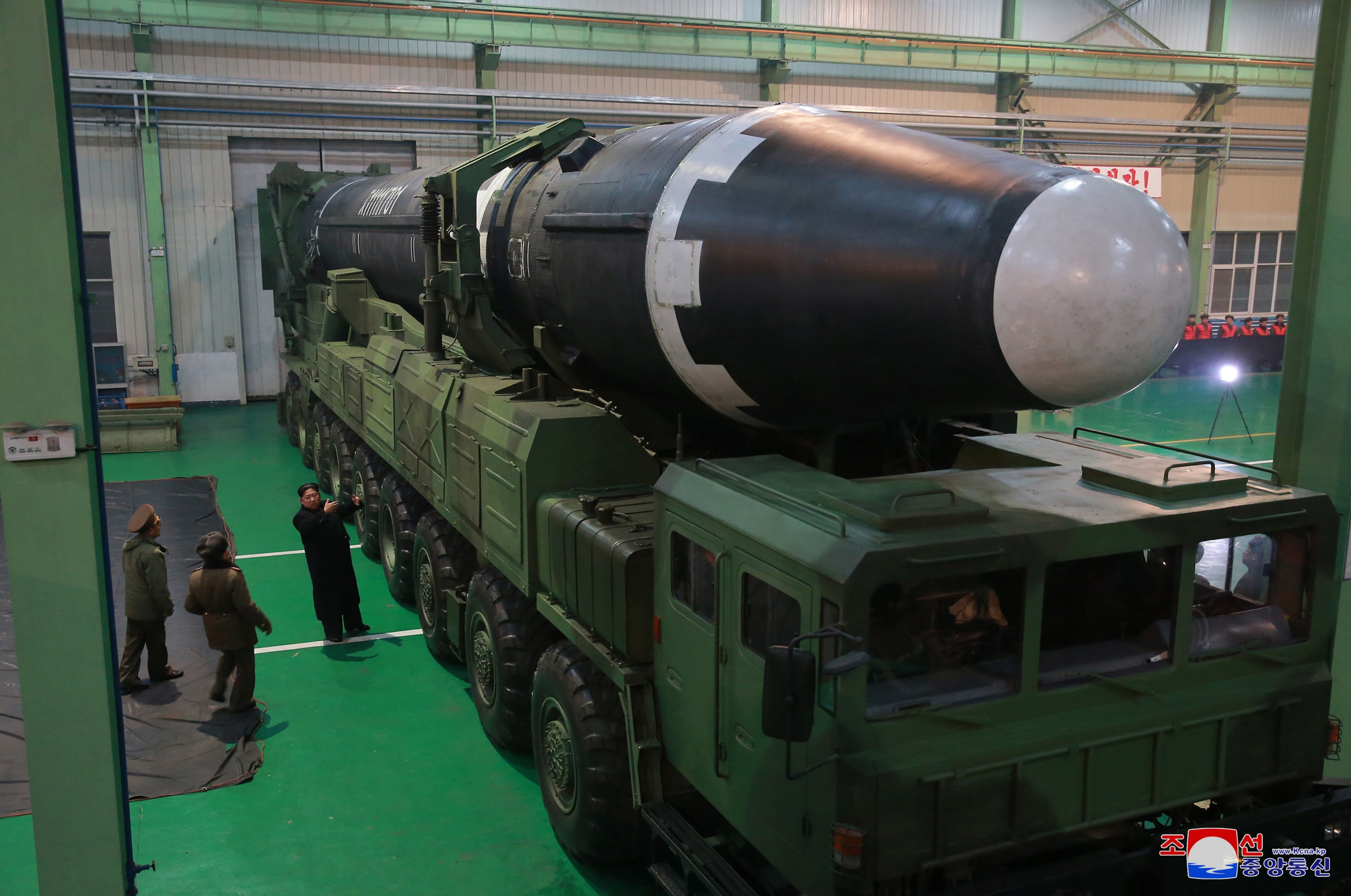
When it comes to nuclear weapons, why on earth would Kim give them up? That arsenal is what has allowed him to share the world stage with the leader of the free world. Not once, but twice. In addition, the American President has become Kim’s biggest cheerleader on a personal level, vouching for his intellect, good intentions, and potential in ways the North Korean regime could never have even imagined. On top of that, Kim’s nukes eventually brought his neighbors closer into his orbit. But above else, they have kept him safe and his power assured even during the tensest time on the Peninsula in many years.
There can be no doubt that history has played a big role in North Korea’s drive to achieve a credible nuclear deterrent. The fates of totalitarian leaders of countries that have relinquished their nuclear programs, such as Libya and Iraq, have not been pretty. More recently, Iran made a deal with the United States on its own nuclear program and it ended up being torn up when the political winds in Washington changed even though Tehran had remained in compliance. Ukraine turned over its nuclear arsenal following the fall of the Soviet Union and now it has Russia snapping up its territory and threatening its very existence.
It’s abundantly clear that in most cases having nuclear weapons equates to more security for a regime, not less.
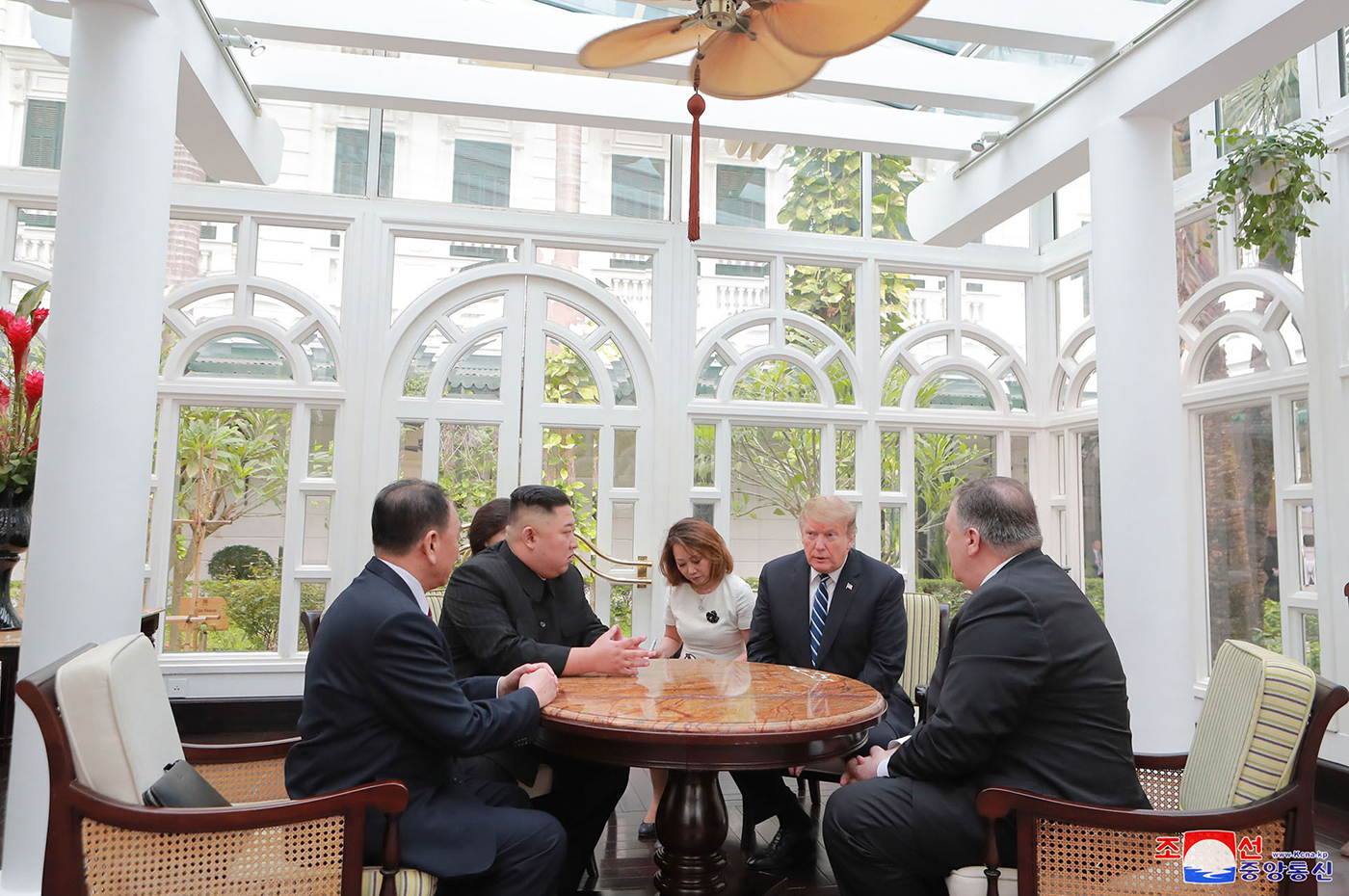
The fact is that there is no real reason for North Korea to give up the atomic weaponry it has worked so hard to acquire. If President Trump engaged the world community and presented a comprehensive deal that included massive foreign investment, energy supplies, food stocks, and security guarantees—one that could be enacted over a number of years—that would end with North Korea emerging as a prosperous state that is part of the world community, maybe there would be a chance. But none of that work was ever done by the Trump Administration. Instead, Trump himself thought he could just use nauseating charm, a tacky promo video, and his own ‘star power’ to make North Korea do something that is totally antithetical to its own interests.

The whole thing has been a sad joke and makes you wonder what could have happened if Trump presented a comprehensive ‘best shot’ plan backed and funded by the world community and told him Kim to take it or leave it. Because now, after endless foreplay, we are still at leave it.
With all that being said, Trump showed up in a very different form in Hanoi than in Singapore. He seemed to finally have a better understanding of the basic nuts and bolts of the North Korean denuclearization issue. This was made clear in his press conference. It seems that with this newly acquired knowledge, he was able to make the right call and to pull the plug on the negotiations when it was clear that Kim had no intentions of giving up his nuclear weaponry.

Even more eye-opening was that Trump clearly stated what Kim wanted and what he was willing to give in return for it. North Korea was willing to dismantle its aging Yongbyon nuclear reactor facility in exchange for the lifting of sanctions. Trump said Kim wanted the lifting of all sanctions while North Korea apparently now disputes this and says it was in exchange for the lifting of some sanctions.
Either way, it doesn’t really matter. Taking the pressure of sanctions off North Korea to any substantial degree in exchange for that facility and some other small concessions would have been a terrible deal. It would have left huge swathes of North Korea’s nuclear program untouched, including other enrichment sites, as well as its entire nuclear arsenal, its delivery systems, and missile development programs.
In addition, that facility, which was once the heart of North Korea’s nuclear program, is nearing 60 years old and it is supposedly in fairly poor condition. It no longer plays as critical a role in North Korea’s nuclear program, especially after the regime has already amassed dozens of warheads and an unknown amount of fissile material.

So once again, we see North Korea only willing to give up expendable facets of its ever-expanding nuclear weapons ecosystem, but nothing that has to do with its existing weapons or delivery systems, or the material already stockpiled to make more bombs in the future.
Even though Trump made the right call, the question remains, why did the President have to travel halfway around the globe and give Kim yet another international press blitz to learn what pretty much everyone with a working knowledge of the situation already knew?
So it’s great that Trump seems to be learning the ropes of diplomacy regarding the North Korean problem, but we seem to be paying an extremely high price for that education. And Mike Pompeo is left with diminishing credibility after playing Mr. Positive for months about a situation that clearly wasn’t moving in a productive direction.
The fact of the matter is that there should have been no second summit without a substantial deal of some kind already agreed upon by diplomats on both sides that have worked the issue over the last year. Instead, a love letter from Kim duped the President into another empty high-profile engagement.
Quite frankly, Trump should have walked out on Kim in Singapore where the exact same issues could have been and likely were identified. Instead, he gave away what North Korea has always wanted most, that coveted handshake with an American President and an empty document that didn’t include a roadmap to denuclearization or even new language stating that North Korea actually intended to give up its weapons.
What happens next? Well at this time, not much. The door has been left open for future talks and negotiations. Clearly, Trump hopes walking will push Kim back to the negotiating table, especially after a long train ride back to Pyongyang. But in reality, North Korea seems to have gotten exactly what they wanted. They have positioned themselves in a gray area, one where endless talk, declining military pressure, positive international exposure, increased interest in cooperation from China and Russia, and all the cache it could have ever imagine from two summits with the President of the United States have materialized. Oh, and that same president keeps singing Kim’s praises to an absurd degree.
So, what is the incentive for North Korea to do anything at all at this point? Sanctions relief? Sure, but there is a good chance Russia and China will just call it a day in that department, anyway.
What happens next in terms of South Korea-North Korea relations? Moon Jae In bet his administration on a denuclearization and normalization deal with North Korea. Now what? Does it continue on without a deal with the U.S.? If so, what would doing so mean for the U.S.-South Korea strategic partnership? Above all else, North Korea’s greatest aim is weakening the military and diplomatic cohesion between the U.S. and South Korea. Just how far Moon will go while being fully aware of this truth is anyone’s guess.
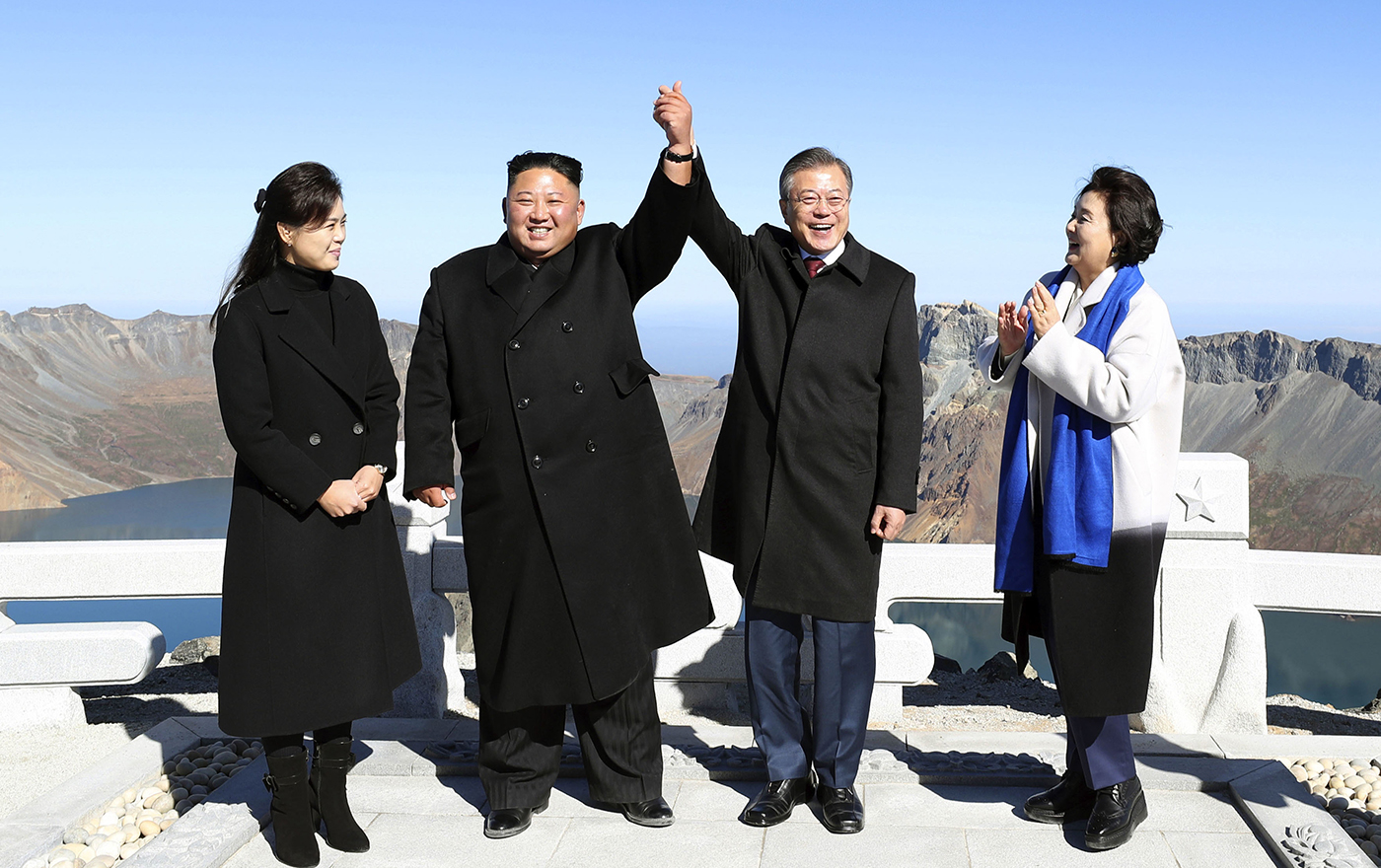
With all this in mind, Kim did exactly what we said he would do following the Singapore Summit—play Trump at the negotiating table. Meanwhile, their arsenal grows and their weapons programs continue to advance. In return, the U.S. gets no missile or nuclear tests. Yet how is this a huge win? If the U.S. just went to North Korea during the tests and said “hey, we want to be friends, we will meet with your tyrant leader at the highest and most publicized levels, talk constantly about how incredible he is, and call off all major wargames, oh and you can keep your arsenal and even continue to develop it, if you just stop doing live tests,” do you really think Kim wouldn’t have taken that deal?
In the end, we are left with a mixed bag. It’s good that the President finally wised up and walked, but that’s about it. And lack of preparation and offering North Korea a ‘best shot deal’ tied to a tight deadline will leave us asking what could have been. At the same time, aside from the sanctions, North Korea is in an incredibly good place the likes of which it is doubtful it would have ever imagined it would be in at this time.
So yeah, Kim won.
Bigly.
Author’s note: I tried to keep this piece focused on the nuclear issue, but the fact that the President of the United States has come out and said he believes the dictator of North Korea when he said he had no idea of Otto Warmbier’s situation until after the fact is a national disgrace. Sadly, it fits right in line with Trump’s blind trust and affinity towards tyrants who have proven to be the absolute least trustworthy actors on the world stage.
Contact the author: Tyler@thedrive.com
